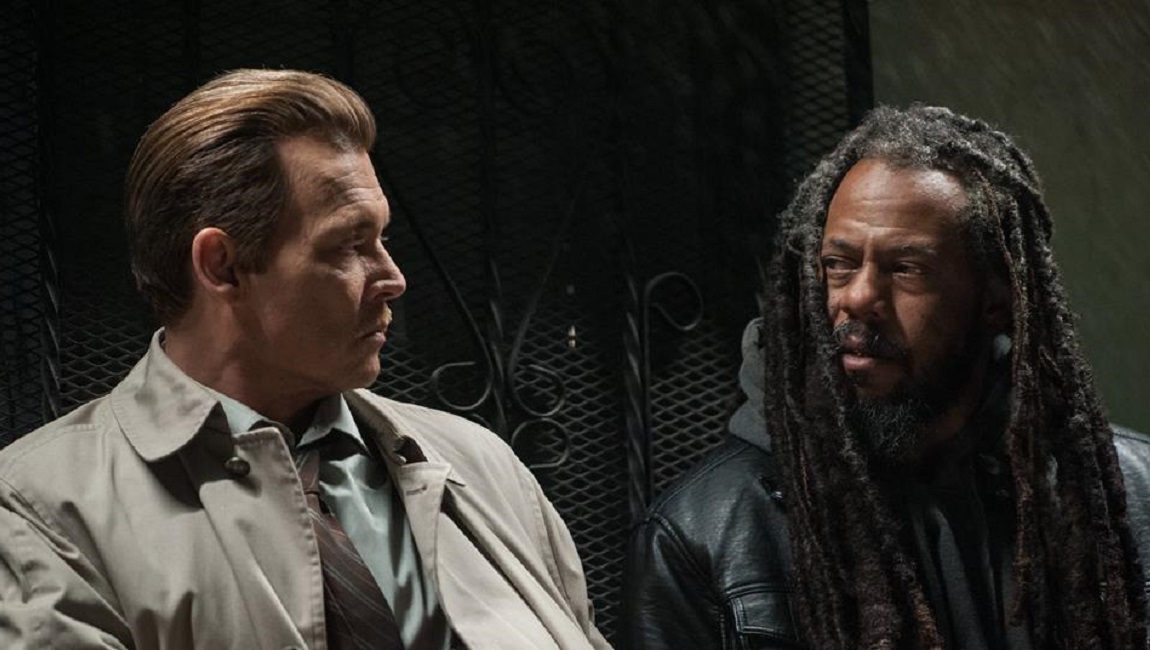The Forty-Year-Old Version deploys a charming lead but never manages to coalesce its many and varied influences.
Within the relative glut of 21st-century hip hop cinema, The Forty-Year-Old Version is a curious fit. Unlike so many other such films, it’s not a biopic, and while it shares the autofictive framing of 8 Mile, it bears little of its brooding temperament and features none of its battle rap milieu. Nobody here is on the come up a la Hustle & Flow, nor is the film a half-assed work of quirk-flecked appropriation in the vein of Patti Cake$. Ultimately, it falls somewhere between Joseph Kahn’s heady Bodied and RZA’s mostly cornball Love Beats Rhymes. Elements of satiristic cultural critique suggest something akin to the former, but evincing a palpable dearth of genuine rap artistry to justify such a comparison, director-writer-star Radha Blank is instead content to simulate this by directing supporting characters to respond with awe to what are in reality deeply pedestrian bars. RZA’s film is a more apt parallel: both films dabble in notions of artistic integrity and pragmatism vs. romanticism, deemphasize rhymes in favor of narrative, and stick to an established formula. Both also happen to successfully deploy dynamic leads, which mitigates some of each film’s respective shortcomings.
The Forty-Year-Old Version’s primary difference from most other recent works of rap-centric cinema is that it’s content to allow hip hop to remain mostly on the periphery. Sure, there’s a token battle rap set piece — the outcome isn’t shown, but on the quality of the spits, it’s safe to assume everyone loses — and a climactic speak-your-truth moment delivered in flow form, but Blank’s film is more concerned with issues of artistic stagnation, professional satisfaction, and the passion involved in the act of creation. The Forty-Year-Old Version is the midlife crisis story of a struggling, former-30 Under 30 playwright and current drama teacher (Blank) who enters into a brief dalliance with the rap game when her frustration with the theater world and its micro-aggressive approach to Black art builds to a breaking point. But it’s tough to know exactly what Blank’s vision is; she stuffs her film to the brim with elements of classroom drama, romantic comedy, and star-is-born pageantry, while also crafting it into a low-key love letter to hip hop, a portrait of grief, and an indictment of the deadening effect of the White gaze on art. This seems to be an intentionally crafted cocktail, as Blank even acknowledges the film’s obvious (stock) influences when she deadpans to her classroom at one point: “This isn’t Dangerous Minds.”
And indeed, it’s not, but it is something of a ‘90s throwback. There’s a very clear circa-millennium indie vibe to the proceedings, whiplashing the viewer through tonal extremes, obvious visual choices — the film is shot in black and white to make evident the personal and artistic malaise at its core, before “fading” into color in the outro — and exchanges orchestrated so that the film’s already-explicit themes can be literally spoken out loud. More successfully, this throwback, DIY filmmaking approach allows for something that feels welcomingly liberated; there’s a little bit of Woody Allen’s looseness here, keeping the stakes low and the temper light. Radha Blank is a charming guide through it all, lending raw charisma and a refreshing lack of polish to a film that lives and dies by its authenticity.
And that’s the crux — despite her efforts to keep the film’s rap elements incidental, there’s no disguising its ersatz qualities. For a film that wades into discussions of gentrification and appropriation, it’s not a great look to prove so out of touch with hip hop. Blank’s character goes by the rap name RadhamMUSPrime, her rhymes, while sometimes incisive, frequently jump out of tempo, and the Instagram producer she collabs with (and who also ends up as her love interest) only seems to create progression-less beats. These are small details, but distancing ones, particularly for a film trying to refute its central character’s feelings of being out of her depth in the rap world. There’s a brief but fantastic shot near the film’s end: as Radha drives through an extended underpass, the camera cuts to a low angle looking out of the car’s window and the tunnel lights rush into frame one after the other, in perfect meter with the bass beat scoring the scene. There’s an almost dreamlike quality to its synchronicity; nothing grand is being conveyed, but there’s pleasure in its contained perfection. If only Blank had taken this cue and kept things simple. Instead, she tries to deliver an entire mixtape of material when one great rap would have been better.
You can currently stream Radha Blank’s The Forty-Year-Old Version on Netflix.







